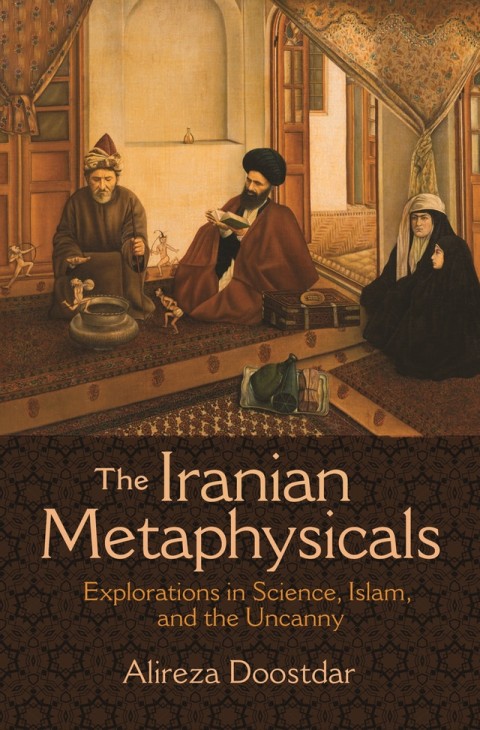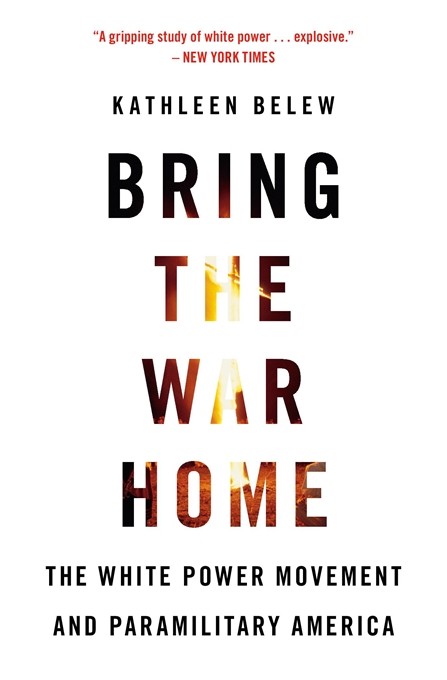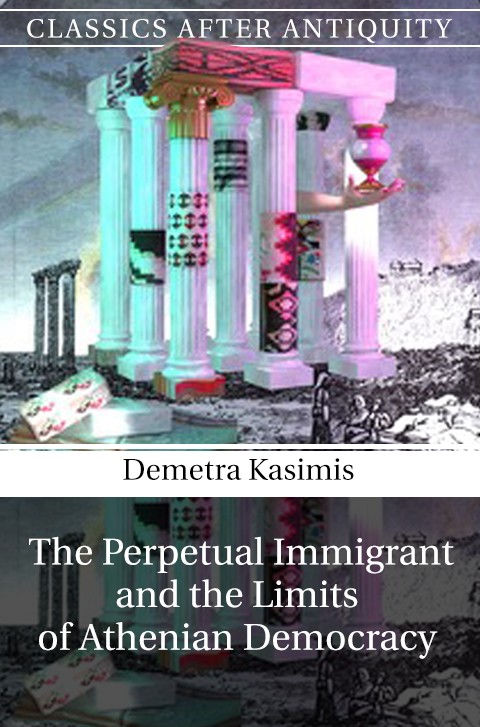This week, the College is launching a feature series on book publications by University of Chicago professors. At UChicago, faculty members are distinguished scholars shaping fields of study while teaching students in the College. Students and professors alike learn and grow from these educational experiences, driving knowledge on the biggest questions of our time. In admiration of faculty, and to honor the UChicago community’s inherent love of learning, discovery and knowledge, we begin by highlighting the books of professors Alireza Doostdar, Kathleen Belew and Demetra Kasimis:
Alireza Doostdar, assistant professor of Islamic studies and anthropology of religion
The Iranian Metaphysicals: Explorations in Science, Islam, and the Uncanny

Asst. Prof. Alireza Doostdar is fascinated by occultism. While conducting research for his book, The Iranian Metaphysicals: Explorations in Science, Island, and the Uncanny, he even spent two years among practitioners of the occult and New Age religious beliefs in contemporary Iran. Through this ethnographic study, he discovered just how important an understanding of occultism is to understanding modern Iranian religion.
“I knew that the Islamic tradition was vast and diverse, but I did not expect to find elements of European occultism and American New Age in Islam as practiced in modern Iran,” Doostdar said. “For example, no less a figure than Ayatollah Khomeini, the leader of the 1979 Islamic Revolution and the founder of the Islamic Republic, drew on European psychical research to make some of his most powerful theological arguments early on in his career.”
Doostdar’s ethnographic research proved crucial for helping him expand his perspective on what counts as Islamic theology. While scholars have often focused on a limited number of canonical texts and figures, he argues that a broader approach is necessary for further exploration. Ethnographic sources are featured in every course he teaches, and he always encourages students to conduct ethnographies of their own.
“My students, both undergraduate and graduate, were some of my most astute readers,” he said. “I find teaching to be an excellent way to advance my research, both by joining students in reading things that I want to think through, and by testing out research ideas in class.”
Since publishing this book, Doostdar has two more projects in the works: an exploration into Iranian attempts to develop Islamic social sciences, and another on Iranian politics of the occult after 1979, focusing on the figure of Satan.
“This has most recently brought me to study the Iranian heavy metal scene,” he said. “And to interview a lot of very interesting metal heads.”
Kathleen Belew, assistant professor of U.S. History
Bring the War Home: The White Power Movement and Paramilitary America

Asst. Prof. Kathleen Belew’s recent book is a history of the white power movement in the context of sentiments surrounding the Vietnam war. Investigating Klan, neo-Nazi, militia, skinhead and other figures in the white power movement, Belew tracks paramilitarism in America in recent decades.
“This work is, fundamentally, about the long legacies of racial inequality in the United States,” said Belew, who recently taught the signature course “History of the Present,” designed to give students from many different disciplines a chance to analyze recent historical moments.
“Both my undergraduate and graduate degrees are in interdisciplinary programs rather than history,” said Belew. “When you have this kind of training, the story leads the research. I find story-driven projects exciting because they generate surprises—so while I use the methods of history, I also work in conversation with many other kinds of thinkers.”
Belew noted that the main surprise from her research on this book was the extent to which the white power movement was made possible by women. “We usually think of paramilitarism as being about masculinity, but white power women did everything from running their own groups and publications to driving getaway cars for violent activists. The network of women's relationships is how we can see that this movement joined people across regions, class backgrounds, and more.”
Recent decades continue to fascinate Belew, and soon she hopes to study the history of the 1990s, including the history of mass shootings outside of the white power movement. Further contributing to her curiosity is the idea of the end of the world and how it shapes people’s ideals.
Demetra Kasimis, assistant professor of political science
The Perpetual Immigrant and the Limits of Athenian Democracy

Asst. Prof. Demetra Kasimis’s book investigates the notions of immigration and citizenship in democracy, particularly in the fifth and fourth centuries BCE, during which immigrants settled with Athens without a path to citizenship.
“I set out to show not only the centrality of these issues in classical Greek thought but also the contemporary stakes of recovering them,” she said. “The point is not how to solve the problem of exclusion once and for all for political life—that is impossible—but how to make visible its always shifting, new and peculiar manifestations in order to critique and address them.”
“In my research and my teaching, I try to adopt a comparative approach that combines historically sensitive work on democracy and political thought with contemporary theory and politics,” Kasimis said. “I think this bi-directional angle has the power to unsettle the familiar ways we see collective life and ourselves.”
A professor teaching the SOSC sequence Classics of Social and Political Thought, Kasimis said her students help her see the most compelling aspects of her arguments. “Teaching is live. If you are a responsive teacher, there is thankfully no way to avoid finding out what the most meaningful and magnetic insights in an argument might be: you can see it in people's faces!”